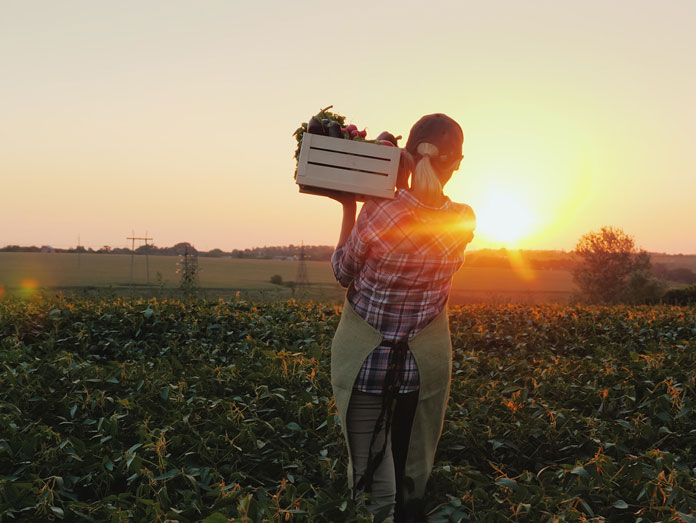Organic farming has been constantly growing for the last decade (62% in ten years), from 8.5 million hectares in 2010 to 13.8 million hectares in 2019. Meanwhile EU consumers have been increasingly interested in this method of production, with the Covid-19 pandemic reinforcing this trend. Still, the current EU farmland devoted to organic farming is at 8.5%, far from the ambitious target of 25% presented in the Commission’s Farm to Fork Strategy*.
A comprehensive action plan
Presently, about 8.5% of EU’s agricultural area is farmed organically, and the trends show that with the present growth rate, the EU will reach 15-18% by 2030. An Action Plan to boost organic production and to initiate the Commission’s Farm to Fork Strategy, was officially presented a few days ago and provides the toolkit to make an extra push and reach 25%. While the Action Plan largely focuses on the “pull effect” of the demand side, the Common Agricultural Policy will remain a key tool for supporting the conversion. Currently, around 1.8% (€7.5 billion) of CAP is used to support organic farming.
The future CAP will include eco-schemes which will be backed by a budget of €38-58 billion, for the period 2023-2027, depending on the outcome of the CAP negotiations.
A progressive approach
The Farm to Fork Strategy is at the heart of the European Green deal, aiming to make food systems fair, healthy and environmentally-friendly. The Strategy stems from the need to redesign our food systems which today account for nearly one-third of global GHG emissions, consume large amounts of natural resources, result in biodiversity loss and negative health impacts (due to both under- and over-nutrition) and do not allow fair economic returns and livelihoods for all actors, in particular for primary producers.
The Farm to Fork Strategy aims to accelerate the transition to a sustainable food system that should have a neutral or positive environmental impact; help to mitigate climate change and adapt to its impacts; reverse the loss of biodiversity; ensure food security, nutrition and public health, making sure that everyone has access to sufficient, safe, nutritious, sustainable food; and preserve affordability of food while generating fairer economic returns, fostering competitiveness of the EU supply sector and promoting fair trade.
The Farm to Fork Strategy is special as it is the first time for the EU food policy to have a comprehensive strategy, encompassing all stages of the food system and putting consumers and producers in the center. As EU agriculture currently represents 10.3% of EU Green House Gases (GHG), the Farm to Fork Strategy is crucial to delivering the EU Green Deal. European farmers, fishers and aquaculture producers are seen to play a key role in the transition to a more equitable and sustainable food system.
The strategy has 27 concrete actions to transform the EU’s food system by 2030, including: a reduction by 50% of the use and risk of pesticides; a reduction by at least 20% of the use of fertilizers – including animal manure; a reduction by 50% in sales of antimicrobials used for farmed animals and aquaculture; reaching 25% of agricultural land under organic farming, of which the current level is 8%.
Consumption increase is key
The European Commission has urged Member States to develop national action plans in the field of organic farming in order to increase their national organic farmland share. At the moment, there are significant differences between Member States in terms of organic farmland, which ranges from 0.5% to a little more than 25%.
Increasing consumption of organic products is key as it will be the main incentive for producers to turn to organic production and thus enhance both their profitability and sustainability. To this end, the action plan proposes a number of specific actions aimed at stimulating demand, maintaining consumer confidence and turning citizens towards organic food.
Cooperation support and organic tourism
Key tools to boost consumption and production of organic foodstuff include organizing information events and networking to exchange best practices, certifying farming teams instead of individuals, research and innovation, using cutting edge technologies to improve traceability, increase market transparency , strengthening local and small-scale processing, supporting the organization of the food chain and improving animal nutrition. To further raise awareness on organic production, the Commission will organise an annual EU “Organic day” as well as awards in the organic food chain, to recognise excellence at all steps of the organic food chain. The Commission will also encourage the development of organic tourism networks through “biodistricts”, aka areas where farmers, citizens, tourist operators, associations and public authorities work together towards the sustainable management of local resources, based on organic principles and practices.
*Source: Copa-Cogeca



















